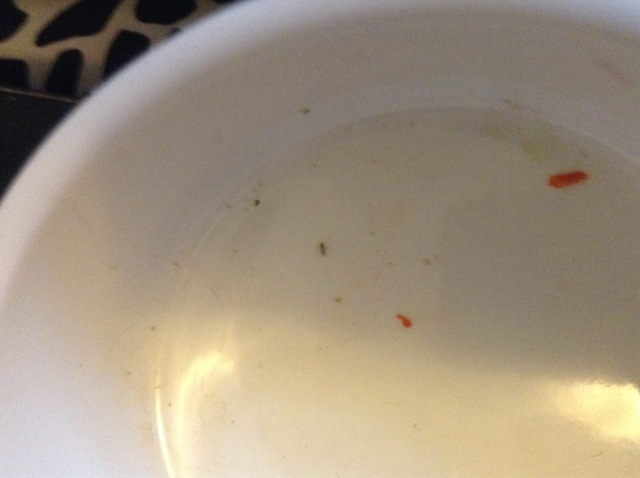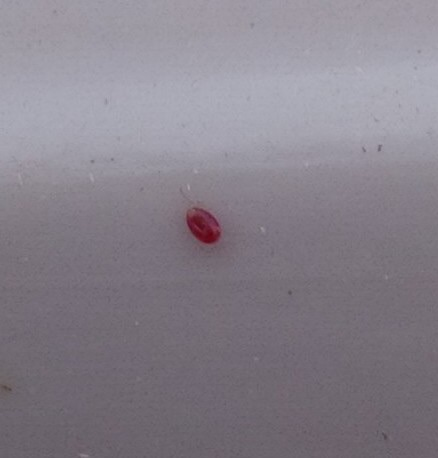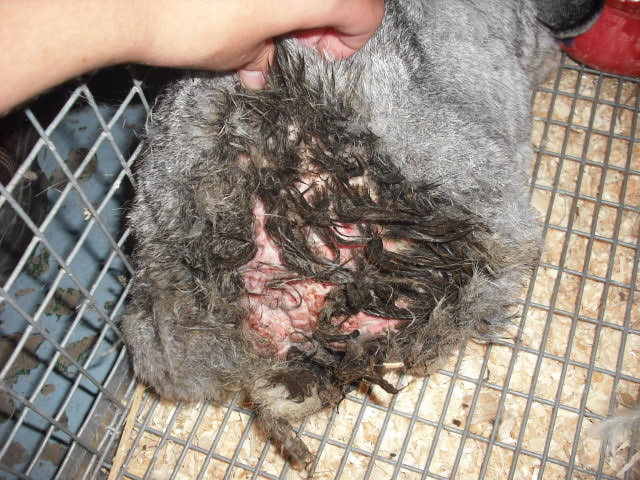QuestionMy rabbit is somewhere eigt years old (maybe a bit older) Not to long ago he got a wet eye (some drops flow out time to time) I went to the vet (not to long ago,) and she said that there is no need for antibiotics since there is no infection. She advised me to rinse my rabbits eye with water, one to two times a a day. I've been doing this but it is still not going away.
I check my rabbit's eye if he might have an infection ( by lifting the eye lid) but it looks the same as the opposite eye. Only the wet eye seems to be enlarged.
So I am asking, is there something I can do? Is there a fruit or some kind of food I should give him? Or should I just keep on rinsing his eye?
Thank you so much for your reply and time.
AnswerDear Chrystia,
Although your vet may not be able to detect an infection superficially, the combination of weepy eye *and* slightly protruding eye suggest strongly that there may be a molar root abscess brewing, and it may be extensive enough to intrude behind the eye and press it out of its socket a little bit.
If your vet is not familiar with rabbits enough to know about this, then you perhaps should seek the assistance of a vet who is more familiar with rabbit medical problems:
www.rabbit.org/vets
You can read more about this problem here:
www.bio.miami.edu/hare/dental.html
which also covers how your new vet will likely diagnose and prescribe treatment. If this is a retrobulbar/molar root abscess, then one excellent "first try" antibiotic (since there is nothing to culture if the abscess is intact) is injectable bicillin (Penicillin-G Procaine plus Benzathine), which has excellent abscess penetration, and is usually effective against the most common bacteria that cause these types of abscesses.
They are particularly common in older rabbits who are starting to show a bit of bone loss. In the light-boned jaws, this can result in molars loosening in their sockets and becoming more prone to infection and spurs.
I hope this helps get you started. Please write back if you have any other questions.
Dana

 Vet couldnt find any mites or fleas, but Im being bit.
Question
little grey bug 2nd pic of bug
H
Vet couldnt find any mites or fleas, but Im being bit.
Question
little grey bug 2nd pic of bug
H
 Red bugs on my rabbits
Question
Red bug/mite found on
I found several
Red bugs on my rabbits
Question
Red bug/mite found on
I found several
 Fur loss and skin irritation
QuestionSkin irritation
QUESTION: I have a 7 yea
Fur loss and skin irritation
QuestionSkin irritation
QUESTION: I have a 7 yea
 I hit/spank my rabbit
QuestionQUESTION: Hey Dr. Krempels,
I have this habit o
I hit/spank my rabbit
QuestionQUESTION: Hey Dr. Krempels,
I have this habit o
 My Bunny Milo
Question
Milo
Hello, I have a male dwarf lop rab
My Bunny Milo
Question
Milo
Hello, I have a male dwarf lop rab